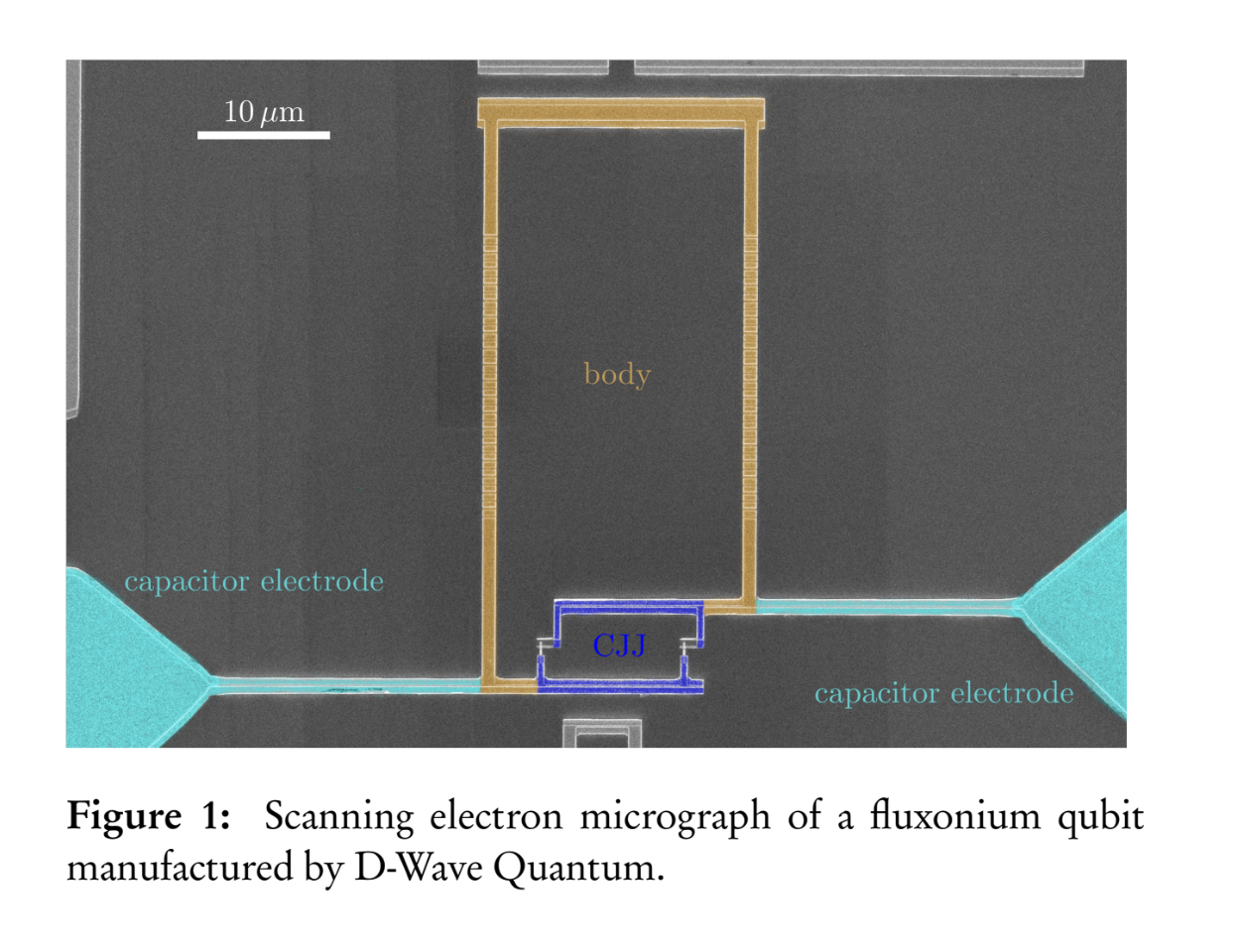D-Wave has made significant progress in the development of high-coherence qubits. The company has manufactured and tested fluxonium qubits, a technology pioneered by Michel Devoret and his colleagues at Yale University in 2009. The measured properties of these qubits are comparable to the best seen to date. Mark Johnson, SVP of quantum technologies and systems products at D-Wave, believes this will have a significant impact on D-Wave’s hardware development. The company’s customers include Volkswagen, Mastercard, Deloitte, and Lockheed Martin.
Fluxonium Qubits: A New Development in Quantum Computing
D-Wave Quantum Inc., a quantum computing systems, software, and services company, has made significant progress in the development of high coherence qubits. The company has designed, manufactured, and operated fluxonium qubits that have demonstrated quantum properties comparable to the best seen to date in scientific literature.
The fluxonium qubit, first developed by Michel Devoret and his colleagues at Yale University in 2009, has recently become an attractive candidate for next-generation gate model quantum computing architectures. D-Wave has manufactured and tested fluxonium qubits in a 2-dimensional circuit geometry. The measured coherence properties, with relaxation times over 100 microseconds, are comparable to the current state-of-the-art for such qubits.
Fluxonium has become an attractive candidate qubit for all D-Wave Quantum’s technologies. D-Wave Quantum has fabricated 2-dimensional single fluxonium test circuits and has confirmed that their coherence is comparable to the state-of-the-art reported in the scientific literature. Moreover, the data from these qubits has revealed that the electromagnetic environment within D-Wave Quantum’s cryogenic systems is comparable to the best results for superconducting qubits published to date.
The Performance of Fluxonium Qubits
The effective temperature of D-Wave’s fluxonium, 18 millikelvin, is among the best that has been reported in the scientific literature to date for superconducting qubits. These results show that fluxonium is a viable candidate qubit for D-Wave’s gate model quantum computing architectures.
Mark Johnson, SVP of quantum technologies and systems products at D-Wave, stated that fluxonium can address some of the known shortcomings of competing superconducting gate model qubits. This development is expected to have a significant impact on D-Wave’s hardware development.
D-Wave Quantum Inc. is a company involved in the development and delivery of quantum computing systems, software, and services. It is the world’s first commercial supplier of quantum computers. The company’s mission is to unlock the power of quantum computing today to benefit business and society.
D-Wave’s customers include Volkswagen, Mastercard, Deloitte, Davidson Technologies, ArcelorMittal, Siemens Healthineers, Unisys, NEC Corporation, Pattison Food Group Ltd., DENSO, Lockheed Martin, Forschungszentrum Jülich, University of Southern California, and Los Alamos National Laboratory.
The development of fluxonium qubits is subject to a number of risks and uncertainties, including the risk that fluxonium qubits may not be viable for use in D-Wave’s hardware, including in gate model quantum computing architectures. Other risks include the company’s ability to expand its customer base and the customer adoption of its solutions, unanticipated technological or project development challenges, and the risk that the company may need to raise additional capital to execute its business plan.
“These results show that fluxonium is a viable candidate qubit for D-Wave’s gate model quantum computing architectures. Moreover, in doing this work, we have learned that fluxonium can address some of the known shortcomings of competing superconducting gate model qubits,” said Mark Johnson, SVP of quantum technologies and systems products at D-Wave. “We believe this will have a significant impact on D-Wave’s hardware development and reinforces our technical leadership by demonstrating that we can design, manufacture, and operate high-coherence fluxonium qubits that are comparable to the best in the world.” – Mark Johnson, SVP of quantum technologies and systems products at D-Wave.
Summary
Fluxonium qubits, a type of quantum computing component, have been successfully manufactured and tested, demonstrating coherence properties and effective temperatures that match the current state-of-the-art. These results suggest that fluxonium is a viable candidate for use in future quantum computing architectures.
- D-Wave Quantum Inc., a leading quantum computing company, has made significant progress in the development of high coherence qubits, specifically fluxonium qubits.
- Fluxonium qubits were first pioneered by Michel Devoret and his colleagues at Yale University in 2009 and are now considered a promising candidate for use in next-generation gate model quantum computing architectures.
- D-Wave has successfully manufactured and tested fluxonium qubits in a 2-dimensional circuit geometry. The measured coherence properties and relaxation times of these qubits are comparable to the current state-of-the-art.
- The effective temperature of D-Wave’s fluxonium, 18 millikelvin, is among the best reported in scientific literature for superconducting qubits.
- Mark Johnson, SVP of quantum technologies and systems products at D-Wave, believes that fluxonium can address some known shortcomings of competing superconducting gate model qubits and will have a significant impact on D-Wave’s hardware development.

